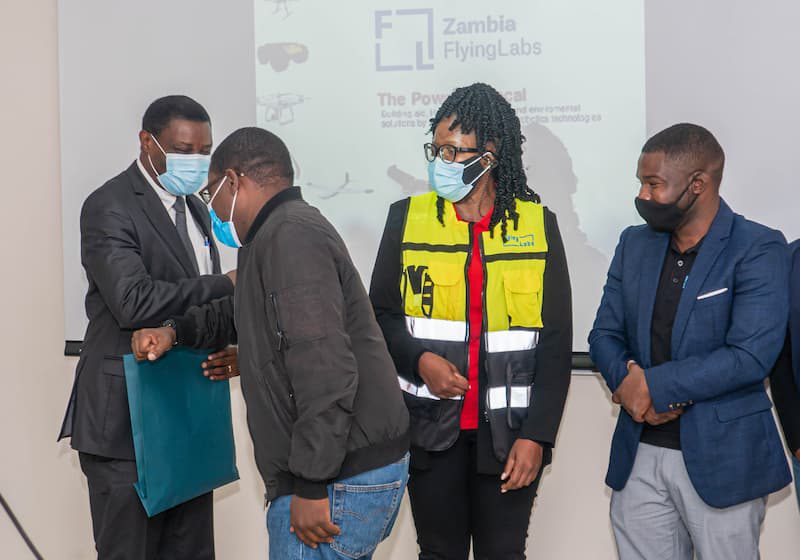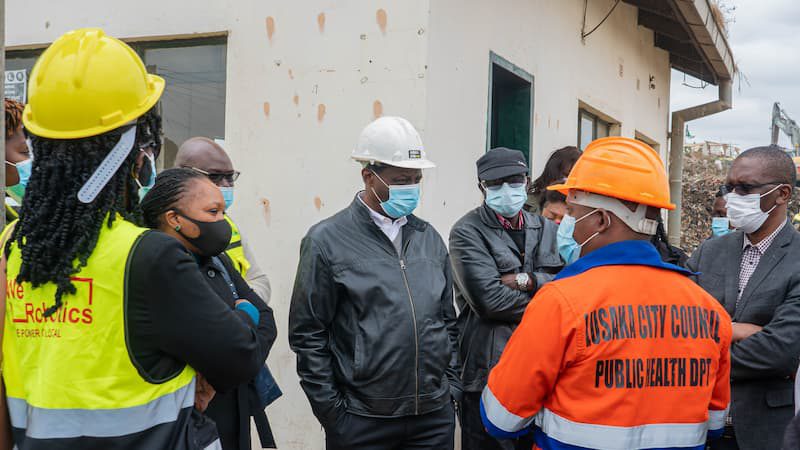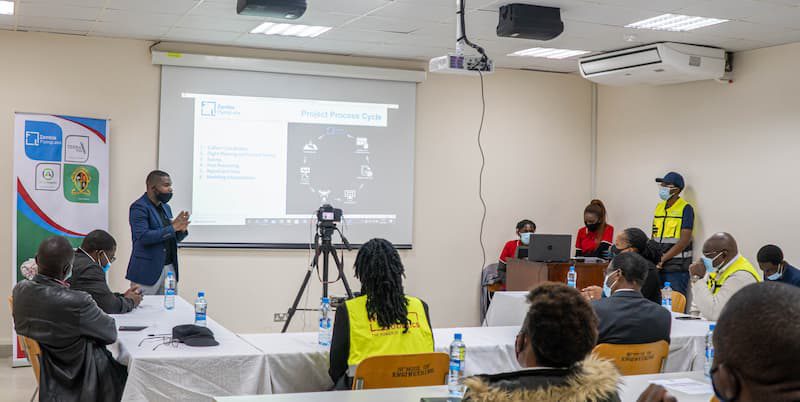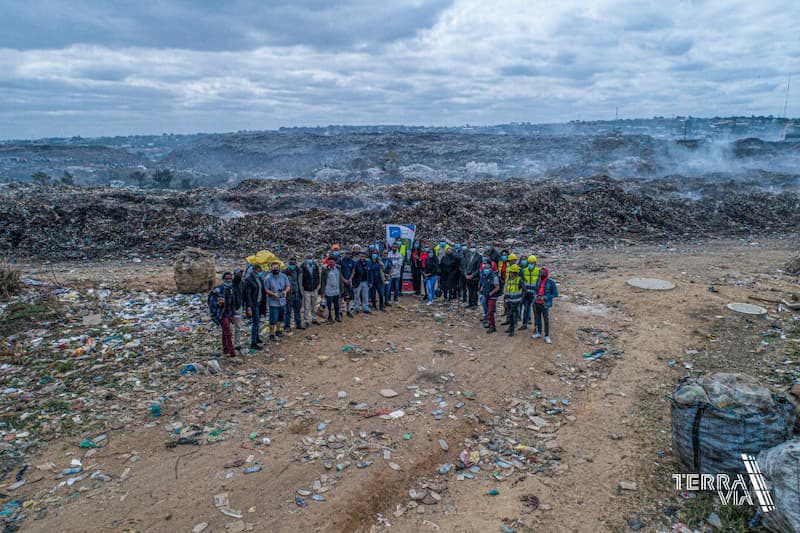
Partnerships & New Technology Catalyze Progress on Critical Waste Management Project in Zambia
The impact of this project will reach far into the future of the Lusaka City Council's plans for any future reconstruction works on the Chunga Dumpsite.
July 27th, 2021
In partnership with the University of Zambia and other partners, Zambia Flying Labs has embarked on a waste management project using drones for stockpile auditing at Chunga dumpsite. The Chunga Dumpsite is currently Lusaka's biggest waste-disposal site available, surrounded by a community of approximately 500 children and adults. For several years, attempts have been made to improve the dumpsite's sanitation and safety to protect area residents. Now drones are being used to assist this effort.

Since the onset of this advancing project, Zambia Flying Labs has contacted several local and international agencies and the Government of Zambia to join as stakeholders, and the response was encouraging! Current stakeholders include the Lusaka City Council (LCC), Zambia Civil Aviation Authority, Disaster Management and Mitigation Unit (DMMU), Ministry of Housing and Infrastructure, Ministry of Higher Education, Sustainable Sanitation Alliance, and Japan International Cooperation Agency (JICA).

We have chosen to collaborate closely with the main stakeholders, the Lusaka City Council (LCC), because they have been working on improving sanitation in the dumpsite area since 2014 when the wall around the dumpsite was constructed to prevent the garbage from overflowing. However, they faced several challenges over the years, which we will now work hand in hand to eliminate.
We recognize the adverse challenges faced by Lusaka City Council in managing the site through our close interactions. We have generated solutions to tackle these problems through these engagements. Because drone output analysis is broad, stakeholder engagements help narrow down the essential details. In our case, this included; monitoring the overspill using processed drone outputs, determining stockpile volumes from processed results using drones, and establishing the extent of encroachment by tracing boundaries from processed works.

Through close collaboration with our stakeholders, we aim to provide long-lasting solutions from the data and information we will receive from the Lusaka City Council. Furthermore, we are working tirelessly to provide them with data for landfill inventory systems, high-resolution maps, three-dimensional models of the site, accurate volumetric readings of the waste material (also called stockpile), and monitoring waste overflow. Understanding all the Lusaka City Council's challenges gave us particular insight when tailoring a strategic plan for using drones for this waste management project.

The impact of this project will be immediate and reach far into the future of the work of the Lusaka City Council and other involved agencies in planning any future reconstruction works on the dumpsite. Further, to avoid any future overspill, we have produced a set of guidelines on properly disposing of waste. Another critical factor in construction is determining the structure's life span. These have been incorporated into the project by measuring waste volumes over specific periods. The ultimate hope of the project is to improve the sanitation of the dumpsite and positively affect the lives of the people in Chunga.
Zambia Flying Labs thanks all stakeholders who have played a unique and fundamental role in promoting and initiating this project. This project is among the many projects led by Zambia Flying Labs to sustainably promote drone use to improve the lives of the Zambian people. Thus, our continued partnership with these stakeholders will broadly impact the progress and realization of these ambitions.
Category(s)
Recent Articles
View All »

Fixed-Wing, Rotary-Wing, and VTOL Drone Training with Japan Flying Labs
